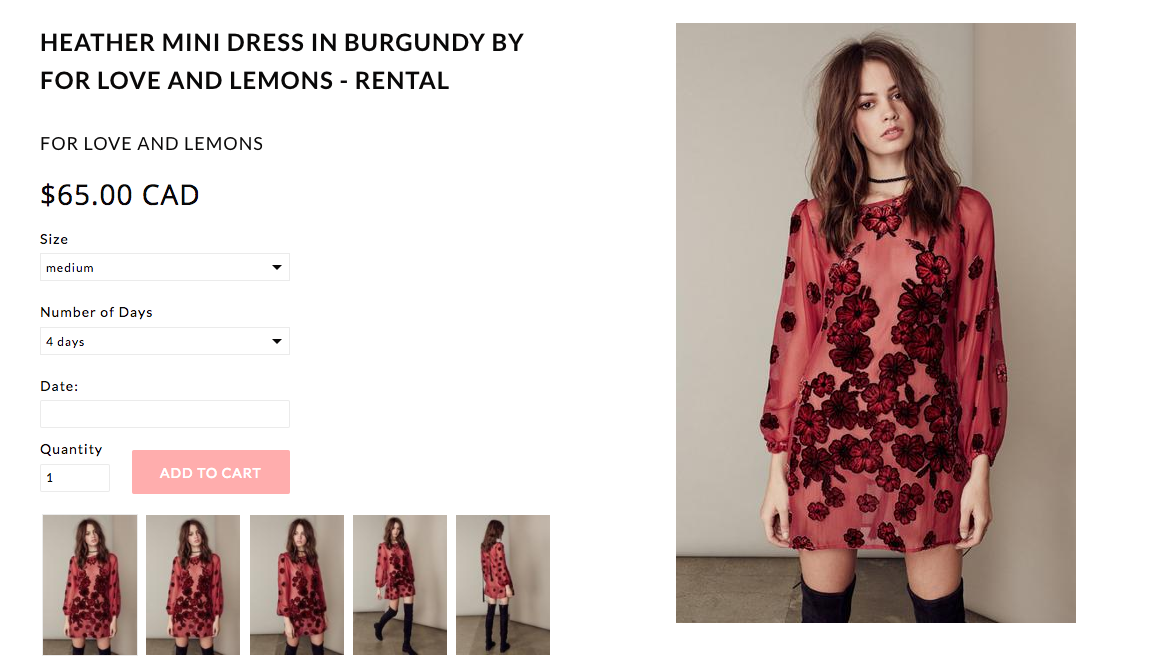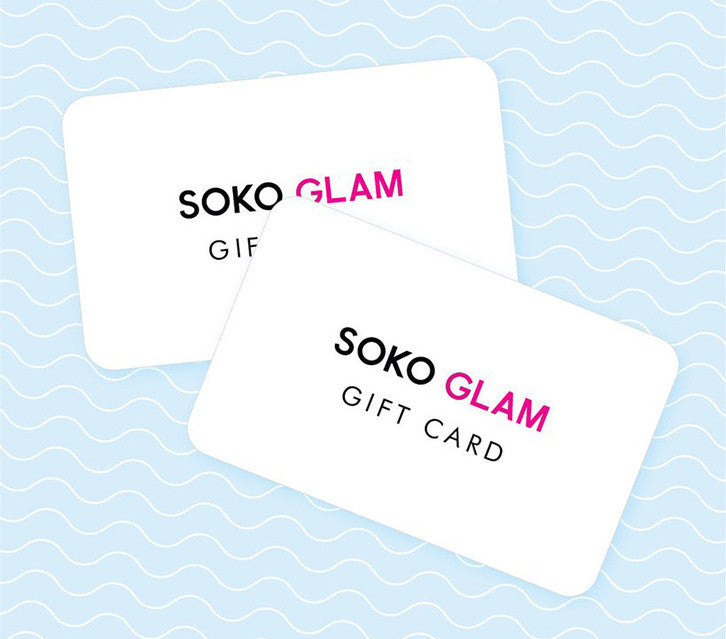12 Things to Sell on Shopify (Other than Physical Products)

When you think of Shopify, what initially comes to mind? Whether it’s t-shirt businesses or maker shops, you’re likely thinking about physical products—small businesses that create and curate goods and sell items online or in stores around the world.
But when we say “product,” we’re talking about more than just tangible things. Many merchants are using Shopify in creative ways to sell, well, pretty much anything and everything else. Experiences, online courses websites, rentals, and digital products are just a few business ideas beyond the well-trodden path of selling physical products.
If you’re just starting out on your journey to entrepreneurship, and still haven’t decided on a product to sell online, consider the intangible, too.
Things to sell on Shopify (other than products)
- Services (appointments)
- Memberships
- Consultations
- Digital products
- Event support
- Experiences
- Classes, lessons, and workshops
- Rentals
- Installations (and quotes)
- Donations
- Event tickets
- Digital gift cards
We looked at 15 Shopify stores selling everything from consultations to charitable donations to dress rentals to help inspire your own entrepreneurial lightbulb moment.
Learn more: Trending Products to Sell in 2020
We’ve also suggested hand-picked apps and tools catered to each type of business so you can make the most of your Shopify experience.
Free Webinar:
How to Find and Source a Winning Product to Sell
In less than 40-minutes, let us walk you through how to find product ideas, how to validate them, and how to sell the product once you have an idea you want to pursue.
1. Services (appointments)
Even though shoes have benefitted from the speed and ease of buying online, there’s nothing quite like an in-person appointment to find the perfect fit. Traditionally, appointments have been a part of the sales playbook for spas and salons, but stores who offer customization in clothing, jewelry, furniture and beyond have begun to adopt these in-person sessions to better connect with their customers and craft the desired products.
Toufie, a women’s shoe designer, sells handcrafted shoes customized to fit each customer. Their goal is to make shoes that you don’t have to break into, so getting a customer’s measurements in person helps greatly in the process. “Appointment bookings are one of the integral components to a risk-free customer shopping experience at Toufie,” says Meliza Salim, co-founder of Toufie. “And thanks to the Appointment Booking app, booking for a 30-min fitting appointment is seamless and convenient. A hassle-free process for us and our customers.”
Suggested app: Appointment Booking adds a dynamic calendar to your store, allowing customers to book preferred time slots with real-time availability. The app syncs with Google Calendar and automatically sends confirmation emails to you and the customer.
2. Memberships
Organizations like the California Native Plant Society can sell memberships to customers on Shopify using a simple app. Memberships work much like subscription box businesses, relying on a recurring payment setup and subscription management tools.
Suggested app: Recurring Memberships allows merchants to sell one-time or recurring memberships online, and can be used for physical businesses (say, a yoga studio) or to manage member-only access to content on a website.
3. Consultations
When your products are frequently used to achieve a specific outcome, there may be an opportunity to sell your time in the form of training or guidance. Everyone from interior designers to fitness trainers can use an ecommerce site to book and sell online or in-person consultations. Healthy Habits Living sells nutritional supplements via its online store, and owner Carly Neubert offers personalized nutritional assessments also for purchase on the site.
Suggested apps: Sufio helps manage invoicing for service-based businesses. Also, try Shopify’s Invoice Generator tool.
4. Digital products
If I Made creates original creative course content with industry professionals and delivers the programming digitally to students.
“Wedding Styling 101 was an in-person workshop curriculum. We then took that content and brought it all online to make it more portable and accessible. Our courses are a combination of worksheets, PDFs, and video.” – Emily Newman, founder of If I Made

Digital products can also refer to music files, fonts, or other design elements. Laura Thomas of Pretty Presets uses Shopify to sell Lightroom presets to photographers.
Suggested apps: apps like Sky Pilot, SendOwl, and Digital Downloads can instantly deliver files to customers after a purchase, or send a link to where the files can be downloaded. Also, try apps like Easy Video to add video previews or free content to product pages.
5. Event support
The Mobile Locker Co. rents and delivers mobile banks of lockers for marathons and outdoor events. Event organizers arrange lockers with the company, and The Mobile Locker Co. uses ecommerce functionality to let runners book individual lockers (listed by event) through the site.
“Online, we offer runners the opportunity to rent their locker in advance. This secures their locker and, for certain events, saves them 20% off the onsite pricing.” – Molly O'Connor, owner of The Mobile Locker Co.
Parthenon Foods, offers a selection of gourmet international foods from over 45 different countries and has clientele from all over as they ship internationally. For those customers sourcing foods for events, the complexities of flavor profiles, exotic ingredients, and staying true to recipes can all be discussed directly with Parthenon Foods through the chat app installed on their website.
Suggested apps: booking services for specific events require extra information to be collected from customers, and a real-time booking app to secure event dates. Try installing Powr Form Builder or a chat app like Tidio, and BookThatApp.
6. Experiences
Experience-based businesses can range from travel and adventure to wine tastings and hands-on workshops. Aspen Expeditions Worldwide sells rock climbing adventures, international guided trips, and camping expeditions through its ecommerce store—and it makes for an excellent product description example for inspiration.
Since the product pages for each adventure require lots of copy to help inform, educate, and persuade potential customers, Aspen Expeditions organizes the information by adding tabs to the product description.
Suggested app: Travel or experience based businesses may need to collect additional customer information like medical concerns and emergency contacts. Use Powr Form Builder to create robust and customizable forms.

7. Classes, lessons, and workshops
Buti Yoga fuses yoga and cardio heavy dance into calorie-burning classes that can be taken in-person and online—customers have the flexibility of working out at home by following videos, traveling to destination retreats, or attending their annual convention. Participants can also get fully certified to become an instructor. Art, music, language schools also sell class passes or memberships online and often use customer accounts to manage member information.
Suggested apps: Customers can book their own lessons and class passes using the Appointment Booking app at the time of purchase. Recurring Memberships is a great option for gyms and fitness studios, too.
8. Rentals
Rental businesses are a service that makes physical products available to customers for a predetermined amount of time. In a way, customers are paying not to own the product and all of its associated costs.
Mannequin Madness sells retail props to other shops through its online store but also rents them temporarily.
"I am an accidental entrepreneur. I saw a mannequin on Craigslist and was going to buy it for an art project,” the owner, Judi Henderson-Townsend told us. “When I discovered that the person selling the mannequin operated the only mannequin rental company in town and was leaving the state, I bought his entire inventory of 50 mannequins." While their rental catalog is available online, Mannequin Madness uses a contact form to assess customer needs before processing the rental.
Dress rental business, Fitzroy, however, takes a different approach by asking customers to select a rental period and check out online by using a date selector variant available on their product page. They rely on a simple app and a clear FAQ page to make the rental process smooth for customers and relatively hands-off for their staff.
Suggested apps: Try Powr Form Builder for manual rental requests and BookThatApp to add a calendar to product pages.

9. Installations (and quotes)
GoGreenSolar.com sells and installs solar energy solutions for homeowners. Due to the custom nature of the product and the additional work involved in installation, customers can request done-for-you quotes and expert advice through the contact forms available on their site.
Suggested apps: Quick Quote can help you gather customer quote requests from your store, and the app also lets you track the quote status and chat with customers. Quick Quote also works for any business doing larger custom projects—graphic designers, furniture makers, or contractors, for example.
10. Donations
Many charities use Shopify as the merchandise arm of their organization, creating a brand and selling t-shirts and other branded goods with profits supporting the cause. Charities and non-profits also use an ecommerce site to “sell” one-time and recurring donations.
The Calgary Public Library Foundation uses Shopify to do just that by selling merchandise and accepting donations online to support their libraries.
Suggested apps: ReCharge is a useful app if you want to accept recurring donations, and Tax Receipts lets you send automated and customizable charitable donation receipts to customers. Finally, Share the Love is an app that helps non-charity stores offer a charity donation option at check-out, in the cases where you want to support an organization and help them rally additional donations.
11. Event tickets
Shopify store Undertow works with select artists to sell tickets online for music events throughout the US. They use a paperless delivery method, sending downloadable PDF tickets to customers.
Suggested apps: Try Events Calendar (an app that syncs with Shopify and Google Calendar) to keep customers and fans in the know about upcoming events. Digital delivery apps like Sky Pilot or SendOwl work great for ticketing. Also, you may find Shopify’s free QR Code Generator helpful.
12. Digital gift cards
The simplest of non-tangible goods to add to any website is gift cards. From Shopify, you can enable gift cards for your store (if you're on the Shopify plan or higher)—they work for both product and service-based businesses, if redeemed online.
Suggested tool: Customize your gift card design using our free template.

What’s interesting about services and other intangible products is that while they may be the heart of your online business, they can also serve as a valuable add-on to a physical products business. Both categories can be sold side by side on the same Shopify store, as many of the examples above show.
To find your first opportunity, pay close attention to why customers buy your products today and find ways to make it faster or easier for them to get the outcome they want. A similar principle applies when you want to introduce a physical product to your primarily service-based business.
One final note that if you’re not shipping physical products from your Shopify store, you may need to disable shipping settings and configure email templates to suit your business. More complex businesses may also consider hiring a Shopify Expert to customize the functionality of the store.
Do you sell services or other non-products on Shopify? In the comments below, tell us about your business and your favorite apps.
